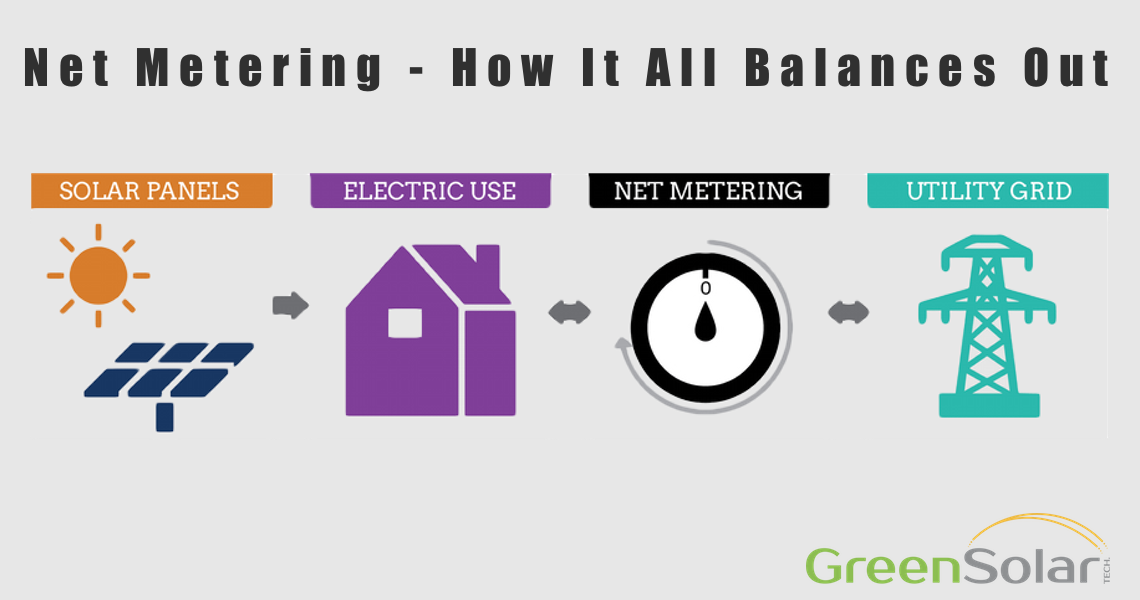
Understanding Net Metering
Let’s start with an exact definition. Net metering is a billing mechanism that credits solar energy system owners for the electricity they add to the grid. For example, if a residential customer has a solar power system on the home's rooftop, it may generate more electricity than the home uses during daylight hours. In essence, net metering is a system of debits and credits that help your utility company even out your bills. Based on the difference between how much energy your solar panels produce and how much energy you are consuming monthly, your utility bill either will be debited or credited. Credits build when your solar power system produces more energy than you are using and vice versa.
Bi-Directional Meters
Not all meters are created equal. A bi-directional meter is unlike a standard electricity meter. These meters are designed to measure electricity flow in two directions. When you connect a solar power system to the grid, you need a meter that can tell you not just how much energy you’ve consumed, but also how much you’ve sent back into the grid.
Monitoring Your Solar Power System
Consistent monitoring helps you regulate your energy usage. There are a few ways of reviewing your energy consumption and delivery back into the grid system. Some bi-directional meters will allow you to view the total amounts on the unit itself and another way to view this is through an online monitoring service. Not all solar power systems come with this feature built into their products, but it can be very useful for reviewing your current energy usage and allow you to make savvy decisions about how you use your energy.
Home Eligibility
Not every home is eligible for net metering. This is due to certain states and utility companies who do not offer this feature. If you are wondering if your state and utility company offers net metering, visit here for a free solar quote and energy evaluation. We will provide you with a thorough solar energy estimate where you will learn how much solar energy for your home will cost you and if you are eligible for net metering or any cost-saving incentives.
Also don't forget to learn more about solar at our Solar University.
by Eddy Martinez & Ged Friedman
